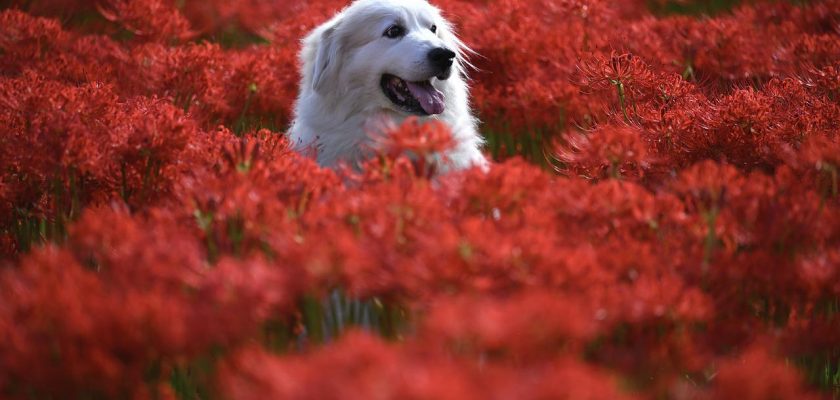The Bichon Frise is a small, sturdy dog with a vibrant, jolly personality. Due to its fluffy and curly white hair, this breed is said to resemble a cotton ball or powder puff. Many call it a “living stuffed animal.” Yes, the Bichon is a snuggler. It’s no surprise that this is one of the most popular small dog breeds.
Caring for Your Bichon Frise
The soft, curly coat of the Bichon grows continuously.
Because of this coat type, routine grooming is an absolute necessity. Bichons should be brushed 2-3 times per week and haircuts may be necessary every several weeks. Nails should be trimmed regularly to keep the feet healthy and comfortable.
The Bichon needs proper training and socialization in order to be happy and well-adjusted. Don’t make the mistake of skipping these just because the Bichon is a small dog! This breed tends to learn quickly though some feel that housebreaking may take some extra effort.
As an active little dog, the Bichon should get daily exercise. Daily walks and fun activities like games are important to keep your Bichon mentally and physically stimulated.
Bichon Frise Information
Group: Non-Sporting Group
Size: Approximately 7-12 pounds (9-12 inches in height)
Color: White (may have traces of Apricot, Buff or Cream)
Bichon Frise History
The Bichon Frise originated in the Mediterranean where it descended from the Water Spaniel.
It is a relative of the Maltese, Coton de Tulear, and Havanese. Bichons once traveled with Spanish sailors, were used in trade and later brought to Teneriffe, one of the Canary Islands.
In the 1300s, the Bichon was discovered by Italian sailors and became the dog of Italian nobles. Eventually, the breed gained immense popularity throughout France.
It is here where its name likely evolved (frise means “curly” in French).
The Bichon came to the U.S. in the middle of the 20th century and became an AKC registered breed in 1972.
Bichon Frise Health Problems
Responsible breeders will do all they can to maintain the highest breed standards as established by kennel clubs like the AKC. Dogs bred by good standards are less likely to inherit health conditions. However, some hereditary health problems can occur in the breed. The following are some health issues to be aware of in the Bichon:
Who Should Get a Bichon Frise?
The Bichon is an energetic, people-oriented dog, so it is ideal for active households who want a small companion dog to share adventures with. The playful and affectionate demeanor of this breed makes it an excellent choice for families with children. The breed is loving and joyful, making it a wonderful companion for almost everyone. Also, because the Bichon is one of many hypoallergenic dog breeds, this breed may be suitable for those who are mildly or moderately allergic to dogs.
If you want a little dog that is cute, happy, and fun, the Bichon Frise could be a great choice for you.
As with any breed, if you think this is the dog for you, be sure to do more research before adopting one. Talk to other Bichon owners, reputable Bichon breeders and Bichon rescue groups to learn more.

